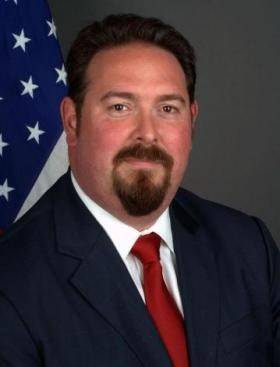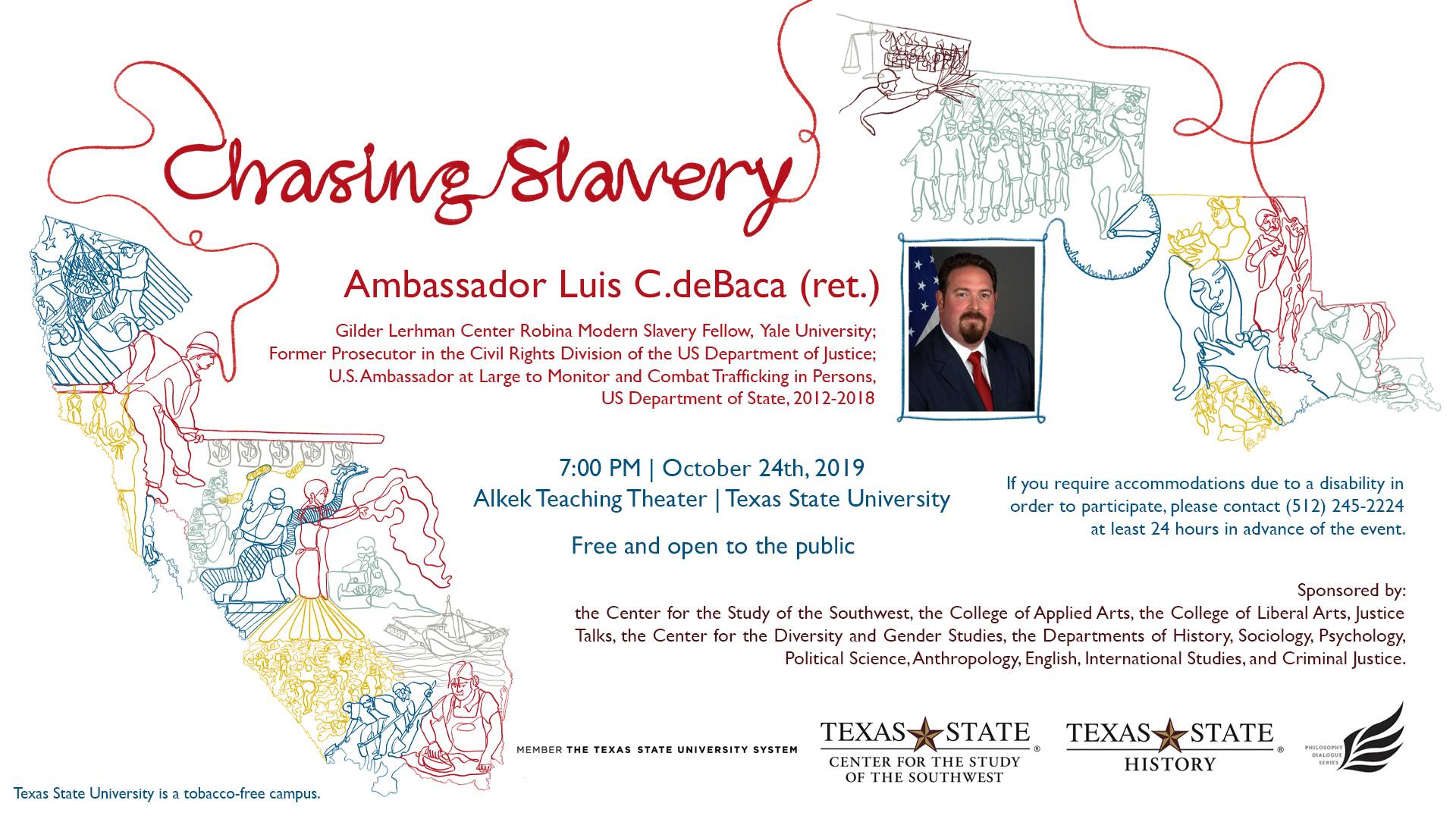 Ambassador Luis C.deBaca (ret.) | Former Prosecutor in the Civil Rights Division of the U.S. Department of Justice
Ambassador Luis C.deBaca (ret.) | Former Prosecutor in the Civil Rights Division of the U.S. Department of Justice
U.S. Ambassador at Large to Monitor and Combat Trafficking in Persons, U.S. Department of State, 2012-2018
The fight against human trafficking has long been a passion driving Ambassador Luis C. de Baca. "It is a debasement of our common humanity, whenever we see something like that taking place," C. de Baca said at his 2009 confirmation hearing. While at the Justice Department since 1993, de Baca convicted more than 100 traffickers and has helped end slavery for over 600 people. During his time in office, trafficking cases increased ten-fold.
C. de Baca was one of the pioneers of the U.S.'s victim-centered approach, which emphasized that nations have an obligation to help victims recover instead of prosecuting them for violating immigration and prostitution laws. "A nation's responsibility for the promotion and protection of human rights and fundamental freedoms is as important as the nation's interest in its sovereignty or general criminal laws," he told senators. "When victims are central to the process, many of these people, with assistance, end up resilient survivors. Their bravery often allows us to put their tormenters behind bars."
C. de Baca grew up on cattle farms in Iowa and New Mexico. He graduated from Iowa State University in 1990 and then moved to Ann Arbor, where he attended Michigan Law School. There, he led the Hispanic Law Students Association and was an editor of the Michigan Law Review. After graduating, C. de Baca joined the Justice Department where he started prosecuting criminal violations of the 13th amendment in Florida. He took a hands-on approach to the problem, investigating and prosecuting trafficking cases of prostitution, farm labor, domestic service and indentured factory work. In his position as slavery and indentured servitude coordinator, he helped forge the country's victim-centered approach to combating modern slavery.
C. de Baca served as Ambassador-at-Large and the Director of the Office to Monitor and Combat Trafficking in Persons from May 2009 to November 2018. He advised Secretary Clinton and Secretary Kerry as the anti-slavery czar for the Obama Administration. C de Baca emphasizes the important historical connections between a vibrant labor movement and anti-slavery conditions.


 Ambassador Luis C.deBaca (ret.) | Former Prosecutor in the Civil Rights Division of the U.S. Department of Justice
Ambassador Luis C.deBaca (ret.) | Former Prosecutor in the Civil Rights Division of the U.S. Department of Justice